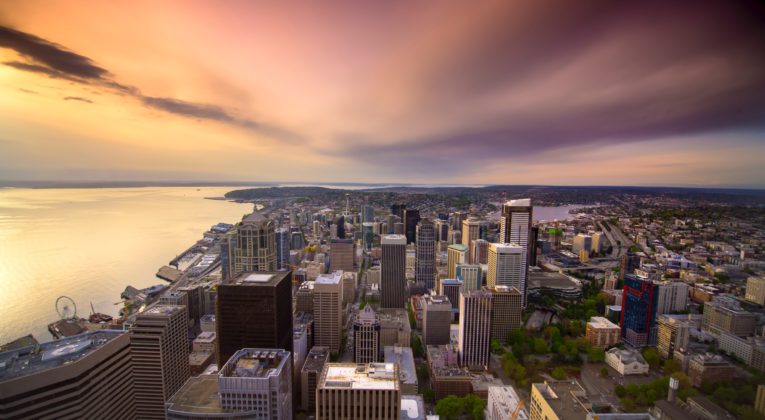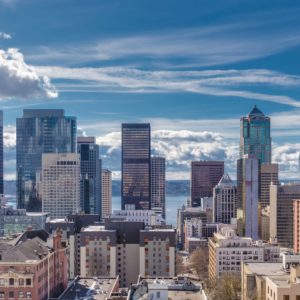With horrific traffic congestion and steadily rising housing prices, two major tech firms in Seattle are faced with a huge question: is remaining in the Seattle area sustainable long-term? It appears as though the answer right now is a resounding yes. With a huge amount of commercial real estate available and an increasing pool of tech employees flocking to the area, Amazon and Microsoft are not leaving anytime soon. However, with talks of Amazon HQ2 in Virginia potentially moving some Amazon jobs away from Seattle combined with the issues mentioned above, what does Seattle’s future look like if Amazon and Microsoft stopped expanding in the city or just left all-together?
The economic impact of these companies on the Seattle economy is massive. Currently, Amazon and Microsoft have market caps fluctuating around or above $1 trillion (Amazon: $872.30B, Microsoft: $1.03 B), placing them next to Apple and Google in the top four companies worldwide. With both of these massive companies headquartered in the Seattle area, the number of tech jobs and commercial real estate opportunities available have been high and rising annually since 2008. Combined, Amazon and Microsoft employ about 90,000 people in the Seattle Area with Amazon employing around 40,000 people and Microsoft employing around 50,000 people. Additionally, Amazon currently has 37 offices scattered around Seattle and Microsoft has a 500-acre headquarters in Redmond, with additional office buildings located in Bellevue and Seattle.
If Amazon and Microsoft were to leave Seattle, the economic growth across Seattle would drop dramatically. While employees of these two behemoths would obviously be impacted, a slew of other companies who work with Amazon and Microsoft would be negatively impacted as well. Additionally, real estate prices could plummet as well in conjunction with the number of Amazon and Microsoft employees relocating and/or taking lower paying positions to stay in the area. However, with a large number of high paying jobs in Seattle unrelated to Microsoft and Amazon, this impact could be somewhat muted in the short term. On the positive side of this hypothetical scenario, this may allow smaller companies to begin to grow faster in the city and, thanks to the current presence other tech companies such as Google and Apple, it is possible that the loss of Amazon and Microsoft would make room for other large tech companies to expand further into the area as they have been rapidly doing over the past few years.
Let’s quickly stress that this is simply a hypothetical scenario and it is not expected to become a reality in any real sense. Amazon is set to expand into Bellevue with a 600-ft tall skyscraper in the works and Microsoft currently has plans to expand its headquarters in Redmond, with recent expansions reaching about 2.5 million new square feet of office space. With the future in mind, it is important to note that the current and predicted future growth Seattle expects to see is likely a direct result of the successes and expansions of Amazon and Microsoft in the area. So, we can also make an educated decision to blame them for the awful traffic…right?
Owen Rice is Executive Vice President at Hughes Marino, an award-winning commercial real estate company with offices across the nation. Contact Owen at 1-844-662-6635 or [email protected] to learn more.


